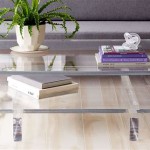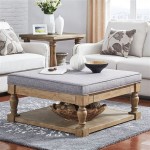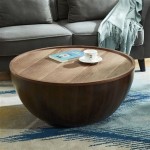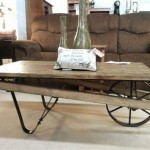What Would Cause a Glass Table to Shatter?
Glass, while seemingly fragile, can withstand surprising amounts of force. However, there are several factors that can cause a glass table to shatter. Understanding these factors is crucial for preventing accidents, ensuring safety, and prolonging the lifespan of your furniture. This article will delve into the common causes of glass table shattering, providing insights into how to mitigate these risks.
Thermal Shock
One of the most common causes of glass table shattering is thermal shock. This occurs when there is a sudden and significant change in temperature across the glass surface. For example, placing a hot pot directly on a cold glass tabletop can cause the glass to expand rapidly in the area of contact. This rapid expansion creates internal stress within the glass, potentially exceeding its strength limit, leading to a shatter. Similarly, exposing a glass table to direct sunlight, causing uneven heating, can also induce thermal shock and result in cracking or shattering.
To prevent thermal shock, avoid exposing your glass table to extreme temperature variations. Use trivets or heat pads to protect the surface from hot objects. Additionally, consider placing the table away from direct sunlight, particularly during the hottest parts of the day. If the glass table is exposed to direct sunlight, it’s advisable to use curtains or blinds to filter the rays and minimize the temperature difference across the surface.
Impact
Another common cause of glass table shattering is impact. While tempered glass is designed to be more resistant to impact compared to regular glass, it still has limitations. A forceful blow or a sharp object striking the surface can cause the glass to break. This is especially true for thinner glass surfaces, which are more prone to cracking or shattering under pressure.
To minimize the risk of impact damage, it's important to handle glass tables with care. Avoid placing heavy objects directly on the surface without proper cushioning. Use coasters to protect the table from scratches and impacts from glasses, mugs, or other items. Furthermore, ensure the table is placed in a location with minimal foot traffic to reduce the chances of accidental collisions.
Manufacturing Defects
In some cases, glass table shattering can be attributed to manufacturing defects. These defects can range from imperfections in the glass composition to flaws in the tempering process. Tempering involves heating the glass to a high temperature and then rapidly cooling it. This process creates internal stresses within the glass, making it more resistant to scratches and breakage. However, if the tempering process is not properly executed, the glass can be more prone to shattering.
Unfortunately, identifying manufacturing defects before the shattering event is often impossible. However, purchasing glass tables from reputable manufacturers who adhere to quality standards can minimize the risk of encountering defective products. It's also prudent to examine the glass table for any visible imperfections before purchasing it.
Improper Cleaning
While it might seem surprising, improper cleaning can also contribute to glass table shattering. Using harsh chemicals or abrasive cleaners, especially on tempered glass, can weaken the surface and make it more susceptible to breakage.
To avoid damaging your glass table, use mild, non-abrasive cleaners designed for glass surfaces. Avoid using sponges or cloths with rough textures, as they can scratch the glass and create micro-cracks, weakening its structural integrity. Instead, use soft, microfiber cloths and warm soapy water for regular cleaning.
Age and Wear
Over time, even high-quality glass tables can become more vulnerable to shattering. As the glass ages, it becomes more susceptible to microscopic scratches and cracks, which can weaken its structure. These imperfections can be caused by everyday use, cleaning, or even changes in temperature and humidity.
Even though these changes are often invisible to the naked eye, they can accumulate over time, making the glass more prone to shattering under stress. While maintaining proper care and cleaning practices can help to slow down the aging process, it's important to acknowledge the potential risks associated with an older glass table. Regularly inspecting the table for signs of damage or wear, such as minute cracks or scratches, can help detect potential issues and prevent accidents.
Mystery Behind Glass Table Spontaneously Exploding

Niverville Family Says Glass Table Exploded In Their Home Cbc News

Hotpot Beware Having Meal On Tempered Glass Table Could Cause It To Shatter If No Precautions Taken The Straits Times

Glass Table Tops Can Suddenly Explode For No Specific Reason

Turn To 10 Family Wakes In The Night By Glass Table Shattering On Its Own Wtsp Com

Niverville Family Says Glass Table Exploded In Their Home Cbc News

Calgary Family Shocked As Glass Dining Table Shatters Without Warning Ctv News
Mystery Behind Glass Table Spontaneously Exploding

Mum Issues Warning After Glass Garden Table Shatters Leaving Her Patio Covered In Dangerous Shards The Sun

Mum Issues Warning After Glass Garden Table Shatters Leaving Her Patio Covered In Dangerous Shards The Sun
Related Posts








